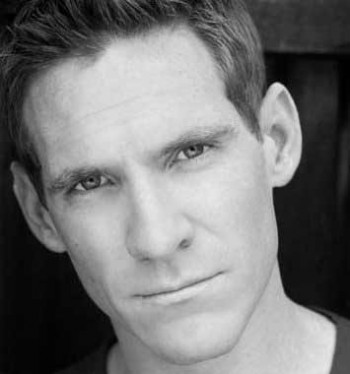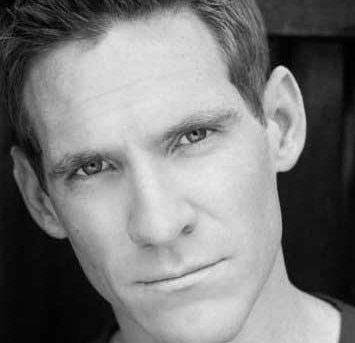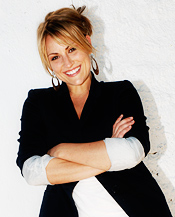Take a Risk: In conversation with Stephen Wheat
After graduating from WAAPA in 2001, Stephen Wheat has been a much sought after (and consistently working) actor, singer and dancer.
He has appeared in numerous musicals including Shout!-The Legend of the Wild One, Dusty, The Boy From Oz, Jekyll and Hyde, 42nd Street, Pippin, Little Me and Merrily We Roll Along, and will soon appear in the Australian Premiere production of Legally Blonde.
In 2011 he made his directorial debut with Hello Dolly for Magnormous. Last year Stephen was the recipient of a Mike Walsh Fellowship and is currently studying full time at HB Studio in New York.
I am chatting with him today about Culture, Taking Risks and Intensive Acting in NYC.

Congratulations on your scholarship to study in NYC – how did you land such a great opportunity?
Last year in July my agent sent me information on the Mike Walsh Fellowship. The fellowship is offered to working graduates of NIDA, WAAPA or VCA to give them the opportunity of studying overseas to advance their careers to the next level.
I had always wanted to study in New York so I started researching the various schools over here. A good friend of mine was studying at HB Studio which teaches the Ute Hagen technique. I have been using the techniques from her book A Challenge for the Actor since I was at WAAPA so I knew this was the place for me. After many emails and phone calls I was accepted to the school and started drafting my fellowship application. I think I did about 8 drafts in total before I was happy.
I sent it off and waited. In November I was shortlisted to the interview round and flew up to Sydney to present my proposal to the panel, which included Mike Walsh himself. After one of the most encouraging interviews I had ever had, the team thanked me for my time and said they would be in touch. I thought I was going to have to wait a few weeks to hear anything, but that afternoon I got a phone call to come back and they told me I had won a Fellowship. Four months later I jumped on a plane and here I am just over half way through my time here and loving it.
Tell us about a normal day for you while studying at the school…
I take seven classes a week at the studio. I have three technique classes – all with teachers who studied for many years under Ute’s guidance. In addition to this I take two voice classes, one movement and an audition class. This happens all with in the space of four days so I normally have a morning and an evening session from Sunday to Wednesday. This works out perfectly for me because it gives me time to study and rehearse Thursday to Saturday. Separate from HB I have a weekly singing lesson with a brilliant vocal coach over here named Andrew Byrne. He is a bit of a genius!
[pull_left] I would love to see Australia set up some studios like the ones over here, not only for students, but for working actors to keep the skills fresh and polished[/pull_left]
What are the biggest differences you have found studying in NYC compared to Australia?
New York seems to have a lot more technique specific studios like Stella Adler, Strassberg, Atlantic, HB etc. This gives students who don’t get into one of the major Universities more training opportunities. These studios offer short intensive courses over periods of 6 weeks to 3 months as well, so they draw a lot of students from overseas. In Australia we have the big three – NIDA, WAAPA and VCA -but our choice of technique specific studios is a little more limited. I’m actually studying with a few Aussies over here who didn’t get into one of the above courses so they set their sights on New York. I would love to see Australia set up some studios like the ones over here, not only for students, but for working actors to keep their skills fresh and polished.
Are there differences between performers in New York and performers in Australia?
One of the best things I’ve noticed about performers in New York is that everyone takes class. Whether they are working or not, everyone takes class. They don’t just limit it to one a week either, they will do multiple classes in many different disciplines. The actors in this city are hungry and very driven. They have to be. The competition here is intense. What I love about where I study is the mixture of ages in each class. You learn from watching veterans and rookies. My scene partner at the moment is 72, she did summer stock in the 60’s, she’s worked with some of the great American stage actors and she STILL does class. She gave me some great advice the other day which was ‘complacency in New York will get you forgotten’. Everyone here wants to be the best and will do anything they can to achieve that.
What have been your biggest impressions of the culture of the city and how has that inspired you in your work/study life?
[pull_right]The actors in this city are hungry and very driven. They have to be. The competition here is intense.[/pull_right]
There is so much on offer, and I don’t just mean on Broadway. There are heaps of independent companies in Manhattan and the surrounding boroughs. The choice is so eclectic, it’s like having the Melbourne Fringe, Comedy and International festivals all rolled into one, all year round!
Every where you go there are flyers for solo shows, open mic nights, experimental theatre, plays, musical, ballet, opera and jazz that you can’t help but be inspired. I have seen some brilliant theatre which has inspired me to be better and some very ordinary theatre that has taught me what not to do. I went to see Peter and the Star Catcher the other night with Christian Borle and it blew my mind. I thought “I want this guy’s career”, you look at his CV and he has done everything from co-op to Broadway. The show itself started as a workshop, transferred to off Broadway and now has been nominated for 9 Tonys. It made me realise that I want to be involved in every aspect of the industry at home whether it be workshop, co-op or professional because you never know where the journey will take you.
I’ve noticed in my studies of personal development and marketing for actors that American performers are more direct and upfront when it comes to asking for bigger and better opportunities. Do you agree?
Americans are upfront and direct, it’s part of their culture. But New Yorkers take it to a whole new level. They are very forward in talking about what they want and how they’ll get it. It’s not really our culture in Australia to be as overt in our self-promotion, but I don’t really think that matters. What matters to me is what happens inside that audition room. If you decide to take this profession seriously and start auditioning all the talk about what you want and how you’re going to get it doesn’t matter if you don’t have the goods to back it up. In Australia I have many driven and determined friends who know what they want and get it without broadcasting it to the world. I think both ways work in their respective cultures.
You were working a full time ‘cushy’ job (getting a regular pay cheque I imagine) at a performing arts school before you left, what did it feel like to pack your bags and head overseas, albeit, alone?
[pull_left]Skype has changed my life. Whoever invented Skype needs be given sainthood…[/pull_left]I have a very comfortable life in Australia, I have terrific friends, a wonderful partner and a great career so the thought of leaving all of this behind for 4 months was a bit daunting. When I won the Fellowship I started contacting the friends I have in New York and realised that I was hardly going to be doing this alone. I have more people to stay with in New York than I do in Sydney. Rachel Bickerton was my rock when I first got here, she gave me a place to stay, showed me how to navigate the very confusing subway and helped me settle into the city. It’s a tough city to get used to but once you do it really gets in your blood and when I started class I knew I was here for the right reasons. I do get homesick from time to time, but Skype has changed my life. Whoever invented Skype needs be given sainthood.
What has been your biggest learning curve so far?
Don’t take time for granted!!!. When I was teaching back in Australia I always used to harp on at my students about how fast the term was going to go and seize every moment. Now that I’m a student again I am reminded of this every day. The more my work develops the less time I seem to have. I’ve got 7 weeks left of classes and I feel that I’ve only just started to scratch the surface. Time management has become a new friend of mine.
What has heading overseas, taking a risk and following your craft inspired you to do when you return home?
Take more risks!!! For the past few years I felt like I was floating around from job to job working and not feeling very inspired and maybe a little frightened of taking risks. This trip has been great for sorting out where I want to go in my career. I now have a clear plan of what I want, the type of work I want to do and how I’m going to achieve that.
[pull_right] I can’t wait to start Legally Blonde when I get home… This is going to be a fantastic show to be a part of[/pull_right]
Congratulations on your role in the upcoming Legally Blonde Season in Australia – 2012 seems to be your year!
I am definitely having a great year, which I am really thankful for. As actors, it’s not often that in January we can say what we will be doing the same time next year. I can’t wait to start Legally Blonde when I get home. I auditioned a year ago so it feels like it has been forever in coming. There is such a great hype about the production already and the cast is full of many good friends that I’ve worked with before. This is going to be a fantastic show to be a part of.
Give us an insight into your audition preparation for your past gigs in theatre, you seem to work a lot, so I’m sure our readers would love to hear your process and tips…
Preparation is the most important aspect leading up to an audition. Every performer needs a book full of songs that they could sing at a minutes notice. I only ever learn new material for a casting if there is an adequate amount of time. You don’t want to go into the room unsure of the words, the notes and what you want out of the song because it will more often than not be a disaster. Song choice is very important as well, make sure your song suits the show. Read the brief carefully. Dress appropriately. Be courteous and polite to everyone involved in the casting process. Don’t apologise if you make a mistake. Claim your space in a dance call. Listen to what to the director and choreographer is asking of you. Don’t listen to the rumours you hear in the waiting room about who might be cast in the role you’re going for. The waiting room can be a killer if you’re just starting out. You know no one and every one else seems to know everyone else, It’s true, but don’t let that frighten you. Remember everyone has started at the exact same place and after a while you won’t be the new kid anymore.



Love it- It turned out Great! So happy for Stephen + thanks for sharing buddy!